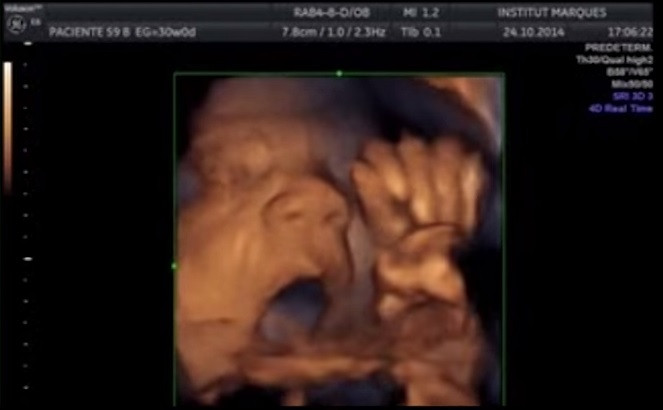Watch babies in womb hear music and move their mouths in response

Babies in the womb can hear music from 16 weeks and respond to the sound by moving their mouths. Facial movements were recorded using a 3D/4D ultrasound by a team of Spanish scientists while playing music intravaginally (where a speaker was placed inside the vagina).
The study was published in Ultrasound, the journal of the British Medical Ultrasound Society. Researchers compared foetal responses to musical stimuli with emitters placed on the mother's abdomen or intravaginally.
They recorded the movements of 106 foetuses between 14 and 39 weeks of gestation. They were randomly assigned to either have an ultrasound either with music played externally or internally. "Facial movements were quantified at baseline, during stimulation, and for five minutes after stimulation was discontinued," the authors wrote.
The team, from the Instituto Marques, found that foetuses from 16 weeks showed mouth and tongue movements. They moved their mouths 87% of the time and their tongues 46% of the time, like they were trying to speak. Scientists say this is the first time anyone has elicited a specific movement in a foetus.
"Foetuses at 16-39 weeks of gestation respond to intravaginally emitted music ... Our findings suggest that neural pathways participating in the auditory-motor system are developed as early as gestational week 16," they concluded, adding that findings could contribute to prenatal hearing screening, as well as neurological stimulation.
Researchers say it appears hearing music manifests into vocalisation movements as it activates the brain circuits involved in language and communication – suggesting learning starts in the womb.
© Copyright IBTimes 2025. All rights reserved.




















